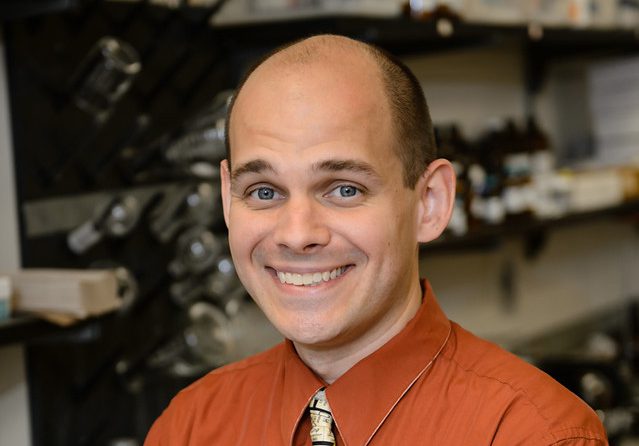CLEMSON, South Carolina — Clemson University chemistry faculty member Andy Tennyson has received a highly competitive National Research Council (NRC) Senior Research Associateship award to develop new materials for organic solar cells. The award enables Tennyson to take a yearlong sabbatical from Clemson to conduct his research in the Chemistry Research Center at the U.S. Air Force Academy in Colorado Springs beginning in January.
Organic solar cells are still a nascent technology – their performance has not been optimized to the same extent as conventional silicon solar cell technology that has been around for more than 60 years. However, organic photovoltaics can be more flexible, lightweight and environmentally friendly to manufacture than their silicon counterparts.

According to Tennyson, researchers have developed a plethora of organic materials to achieve optimum performance in the donor and acceptor layers of the organic solar cells, but many of these materials are extremely time consuming to make or are accessible only in small quantities.
“What [my group] is trying to do is come up with structurally simpler molecules that can do the same thing as these materials but are easier to make and more practical to produce,” said Tennyson, who will apply his chemical synthesis expertise to developing low-bandgap conjugated polymers. “Our new class of materials will try to get as optimal efficiency of electron transfer from the donor to acceptor as possible.”
Tennyson will be working in the lab of Clemson alumnus and noted chemist Scott Iacono (Ph.D., 2008), who is the director of the Chemistry Research Center. The NRC award is provided by the National Academies of Science, Engineering, and Medicine and the Air Force Office of Scientific Research.
“I’m indebted to my students and couldn’t have gotten this award without them,” said Tennyson, noting the research contributions of former doctoral student Yamin Htet (2017) and current doctoral student Zhuomin Lu, who conducted research in his lab on preventing the chemical degradation of medical implants.
“The Clemson chemistry department and College of Science have done a great job of building partnerships with other institutions and providing an empowering environment for pursuing these types of collaborations and national awards,” he added.
A recipient of a 2016 National Science Foundation CAREER award for young faculty, Tennyson has also been developing new chemical catalysts that may someday improve the outcomes for stroke and organ transplant patients. These catalysts reduce oxidizing radicals, which cause tissue damage following strokes and trigger immune system responses after an organ transplant.
Get in touch and we will connect you with the author or another expert.
Or email us at news@clemson.edu

